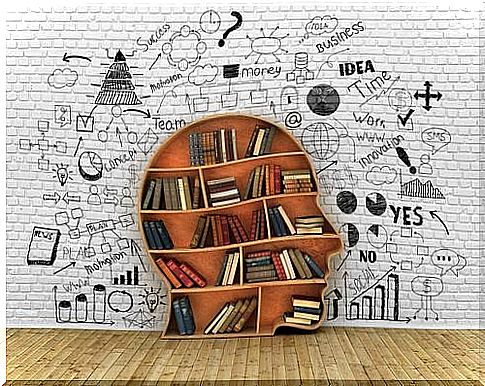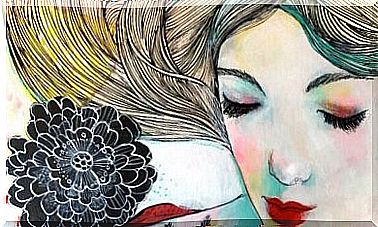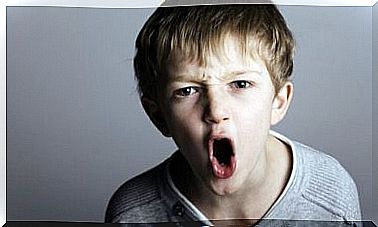Bibliotherapy: The Healing Power Of Books

Bibliotherapy has wonderful effects. Reading is one of the best ways for human beings to cultivate their minds. Throughout history, books have instructed, entertained, and protected us. On some occasions, they also gave us hope, support, support and many even saved us.
The magic that books emit is immense. According to Freud, words and magic were, in the beginning, the same thing. That’s why we sometimes seek refuge in books. In fact, the experience of healing or healing through books is known as bibliotherapy.
There is no doubt that reading helps improve our emotional health. There are several benefits that can be reported, even without our being aware of it. Its positive effect is shown in people with alterations, mild or moderate mental disorders, and even physical ones. Let’s go deeper.
Types of bibliotherapy
First, we must distinguish between the two main types of bibliotherapy, which are in accordance with the objective sought by this same reading.
- Clinic: the goal is for patients to be able to change their attitudes and behaviors. Therefore, it is usually performed in a hospital setting. They are intended for people who suffer from mood disorders, ADHD or TCA. Used books provide information on a specific topic to facilitate focusing on a specific aspect of the patient’s reality.
- Evolution or Personal Development: Your goal is personal growth. The reading is done individually or in groups and in a preventive or corrective way. In addition, the environment in which it is carried out is broader than in the clinic, as it can also be carried out in libraries or educational centers. This literature is based on the proposal of self-help methods, which contain exercises or personal learning tasks: how to be more assertive, introduction to meditation, public speaking…

The effects of bibliotherapy on our brain
“He is a very read person.” We often use this phrase to refer to those people who have a high intellectual level, the result of their learning through reading. But reading, in addition to broadening knowledge, also offers many therapeutic benefits.
curative distraction
Who has never dived into the pages of a novel or a story and ended up being transported to another reality? When we immerse ourselves in a fictional story, we let go of our worries and problems to focus fully on the narrative.
Thus, by moving away from our reality for a few minutes, we will be disconnecting from our fears and worries, helping to improve our mood. And all this unconsciously.
Dedramatize
How many times do we obsess over a problem and don’t stop thinking about it? Sometimes we make a great mountain out of a grain of sand, which does not allow us to see any further. In these cases, the books can act like a little hurricane that ends up with this mound and allows us to get some air. Now, let’s not forget that being focused and self-focused is okay, but in an appropriate measure.
Bibliotherapy, on certain occasions, offers the possibility of softening the situation that a person is experiencing. Fiction helps to not feel alone and to share problems and thoughts with the characters themselves. It makes us see life in a different way, with more perspective, serenity and capacity for reflection.
Reading invites us to grow emotionally. With that, you can get inspiration and mobilize enough energy to move forward. In fact, according to Dr. Raymond Mar, “Reading favors brain activity similar to what would trigger real experience.”

Happiness
In this article published in The New Yorker , the healing power of bibliotherapy is exemplified: “Fiction reading is one of the places reserved for transcendence; that state in which the distance between itself and the universe is reduced. Reading makes me lose all sense of my being, but at the same time it makes me feel more original” , said the author.
Likewise, the results of a survey conducted by neuroscientists at Emory University (Atlanta) are encouraging. They concluded that reading helps to reduce stress levels and increase psychosocial development.
Empathy
The ability to put yourself in others’ shoes, to understand their emotions, both positive and negative, is above all social. However, to develop it, you don’t need to be surrounded by other people. An example of this is bibliotherapy, thanks to which letters are converted into a simulation of reality. So it’s a myth to think that reading is just for lonely people.
If we can understand the development of the stories and empathize with the characters, we can improve our life in society. Furthermore, reading fictional literature is one of the factors contributing to the development of the famous theory of mind.
depression and anxiety
Reading focused on the treatment of anxiety and depression has yielded excellent results. In fact, the National Institute of Health and Care Excellence (NICE) recommends bibliotherapy to help these patients in mild cases. It is noteworthy that in England a campaign aimed especially at young people was launched. Under the title ” The Reading Well for Young People “, doctors can prescribe reading for these types of mental disorders.
The healing power of books is, as we have seen, indisputable. The results may not be immediate, but in the long run, reading benefits your mind and body. Why not try?








